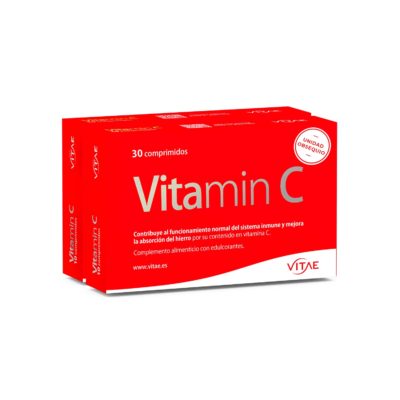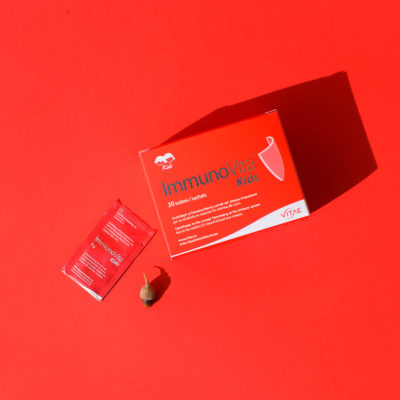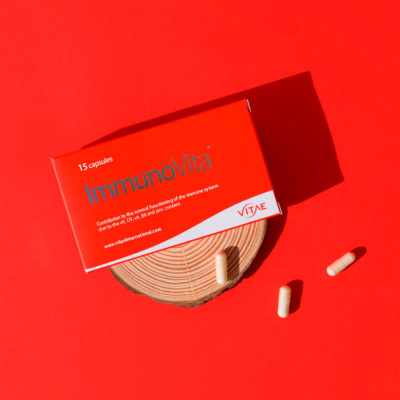For some time now, the immune system has become one of the most popular topics. What is the immune system, how to strengthen it, what kind of diet should we follow to keep our defenses strong and active, are just some of the questions raised by everybody. There is a clear and direct relationship between the immune system and the digestive system (poor digestion), the latter being our first line of defense. To better understand this concept and determine what should be the necessary care to keep it in perfect condition, we have spoken with Martina Ferrer, dietician-nutritionist and specialist in Psychoneuroimmunology.
Let’s start with the basics, what is the immune system? Broadly speaking, what is its mechanism of action?
Generally speaking, immunity consists of all of the body’s defense systems that resist infection and toxins. The immune system therefore has a critical role in defending against pathogens.
Although it works as a cohesive system, immunity is made up of several parts. A broad distinction can be made between innate (non-specific) immunity and adaptive or acquired (specific) immunity.
How all this is related with the digestive system?
Increased intestinal permeability, or “leaky gut” (leaky gut syndrome), is associated with autoimmune diseases and the development of various inflammatory diseases (the first response of the immune system). Such alterations have been linked to higher inflammatory biomarkers and weakened immunity. Chronic, low-grade inflammation makes us more susceptible to infection.
Why do we say that the intestine is our first defense barrier?
In the walls of the intestine we find Peyer’s patches, structures that are part of the immune system, in addition, as I mentioned above, if we suffer from intestinal hyperpermeability our immunity will be compromised and lastly, because our microbiota resides in our intestine, and this is also part of our defense mechanism.
How can we know if our digestive system is damaged or not working properly?
There are several ways to know, the most obvious have to do with the digestive system itself: intestinal discomfort and pain, poor digestion, heaviness, burning, reflux, gas and abdominal swelling, constipation and/or diarrhea…
Other ways that may be giving us signs that our digestive system is damaged and we suffer from increased intestinal permeability are skin problems, allergies, musculoskeletal pain, etc.
What habits should we eliminate from our lives to keep our digestive system strong and in perfect condition?
One of the most important, sedentary lifestyle, we are designed to move!
The little exposure to sunlight is something we need to change as we need to expose ourselves to daylight to be healthy and sleep better.
Bad habits about sleep routine, while we sleep our immune system is when it works the most and recovers.
Poor diet, processed products, sugars, refined flours, alcohol and the consumption of poor quality fats have a very negative influence on the health and strength of the immune system.
And last but not least, stress. Stress in small doses can be beneficial for different aspects of our lives and our health, but too much stress sustained over time seriously damages the integrity of the intestinal wall and this has serious consequences on our immune system. If you catch colds often or do not recover well from a cold or if you fall ill at the beginning of your vacation or during the weekend, this is a sign that you are suffering from stress and your immune system is not strong.
On the other sude, what things should we add to our lives to enhance our digestive health?
First and foremost, chewing. We must chew 20 times each bite.
Drink water and keep our body well hydrated.
Consume fermented foods, foods rich in antioxidant substances, ghee or butter to obtain butyrate and propionate and foods rich in fiber of different types such as cooked and cooled potatoes rich in resistant starch, chia and flax seeds soaked to obtain mucilages, compote apple rich in pectin, etc. All these foods improve the quality and diversity of our microbiota.
Finally, it is also necessary to guarantee foods rich in micronutrients such as vitamin D, A and C or minerals such as zinc, among others. Eggs, wild small oily fish, shellfish, organ meats, ghee, etc.
In addition, we must respect 8 hours of daily sleep in accordance with the circadian cycle (go to sleep at 10 p.m. and get up at 6 a.m.) and expose ourselves to sunlight.
Practice physical activity and maintain an active life on a daily basis.
And of course, learn to manage stress and emotions, set limits, say no, express our feelings, meditate or practice our hobby, etc.
What do you think about fasting? Can you improve our defense system?
I am in favor of practicing intermittent fasting. We should all do a daily fast of 12 hours at night, this is mandatory, then we can do 16 hours some days of the week and some 24 hours a few times a year.
One of the main benefits of fasting is that it favors the MBC of the stomach, necessary to sweep and cleanse bacteria and residues that can damage and harm the intestine and its microbiota. But, in addition, while we fast, tissue repair mechanisms are set in motion and this improves intestinal hyperpermeability and decreases inflammatory processes.








